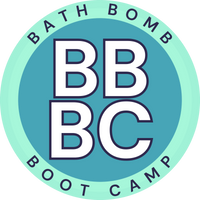Soap On A Rope For Beginners
Soap on a rope from stores can run you upwards of $10 to $20 a bar, but we've got a great way to get around that: make it yourself!
Handmade soap on a rope has a rugged, quaint appeal that is a great gift to give to friends and loved ones. If you’re looking to get into soap making, this is a fun and simple project to start with.
To start, you’ll need a glycerin melt and pour base that you can buy at most decent craft stores, the essential oils you’ll be using (we love lemongrass and lavender!) a sturdy rope that doesn't shed and a few household containers in any shape. This melt and pour ‘recipe’ is super simple, so don’t worry about lye and other dangerous chemicals!
To start, figure out how much soap you would like to make and cut your glycerin block into small cubes. The blocks will stretch quite far when melted so keep that in mind when cutting. A pint size container can be easily filled with three or four 3” x 3” cubes.
Once you've got your blocks cut up, drop them in a heat safe container and melt them over a double boiler or in the microwave. Once your soap base is totally melted, add your essential oils. It can be tricky to measure out how much essential oil to add, but the heat of the soap and its density will cut some of the scent, so don’t be afraid to add a bit more scent than you would to say, an oil warmer.
Now dump your melted and scented base into the shape you’re using (like an empty and clean can). You’ll need to figure out a way to suspend your rope in the soap as it sets. We recommend using two equal height blocks on either side of your shape that are at least four to five inches taller and use a stick or ruler to suspend the rope on. Let both ends of the rope sink into the middle of the liquid mixture and then let it set overnight.
Extracting the soap when set becomes easier if you refrigerate the mold (if you’re using plastic) or heating it quickly in boiling water (if you’re using metal). Once your soap pops out, you’ll have a beautiful, handmade soap on a rope to share with your friends!
Should You Use Essential Oils In Your Soap?
We encourage you to begin your introduction to essential oils with lots of research before using them in your soaps. Because essential oils can infuse your soaps with certain health benefits (be it olfactory or topical), we encourage educating yourself on the uses of the oils you are interested in. For example tea tree oil can reduce bacteria, fight fungus and reduce allergic reactions in skin, but it can also burn the skin if used in too high quantities or undiluted.
To understand what scents will work well together, you will have to learn a bit about scent structure. Scents are made up of a top, middle and base note. A top note is a fleeting, initially noticeable scent. Middle notes are denser, may take longer to recognize and provide body to the scent. Base notes last the longest, act as a fixative and are often the richest scent in the blend.
There is no hard and fast rule on how much essential oil should go into your soap. A good starting point for cold process soaps is to add about 3% to 5% per pound of base oil. From here, you will have to experiment to figure out how much scent you would like. Some oils will also last longer than others or be more pronounced.
Some essential oils can be better than others. Oils referred to as “fragrance oils” or “fragrance blends” are a quick way to tell that what you’re getting is not a pure essential oil, but a diluted variant often cut with chemicals to extend the scent or produce a scent that is not found in nature, like “fresh linen”.
While we do advocate for the use of essential oils for therapeutic uses, this advice should never be taken over that of a medical professional and we always suggest educating yourself and speaking to a healthcare practitioner about the oils you use on your skin.

